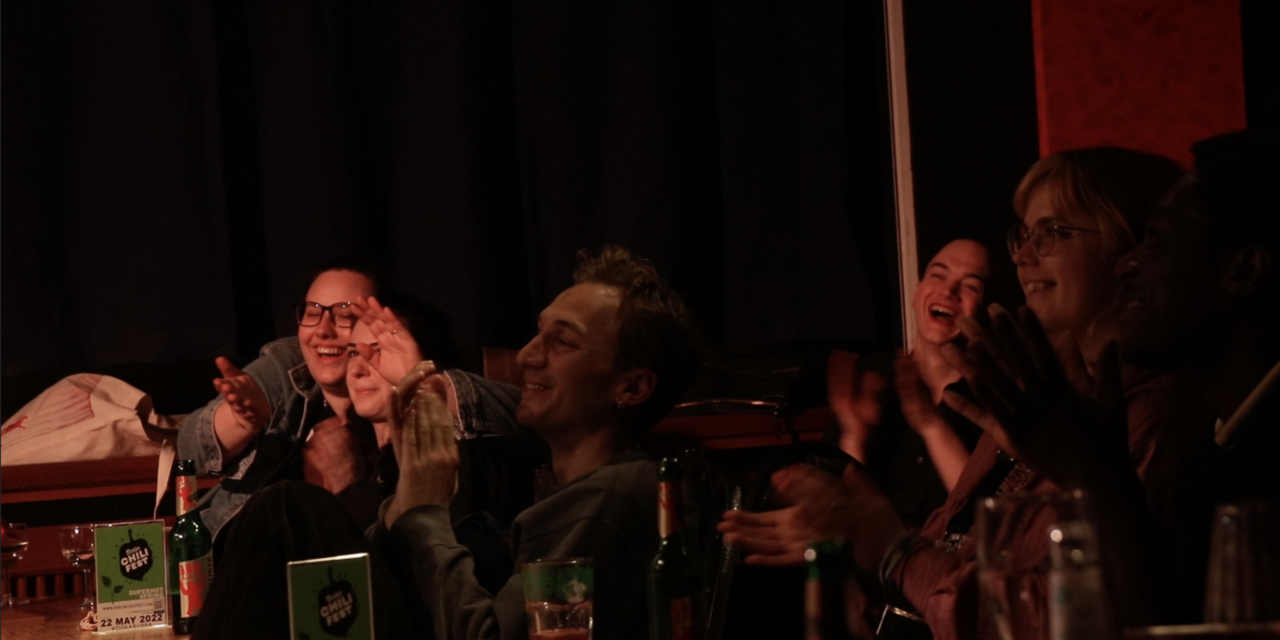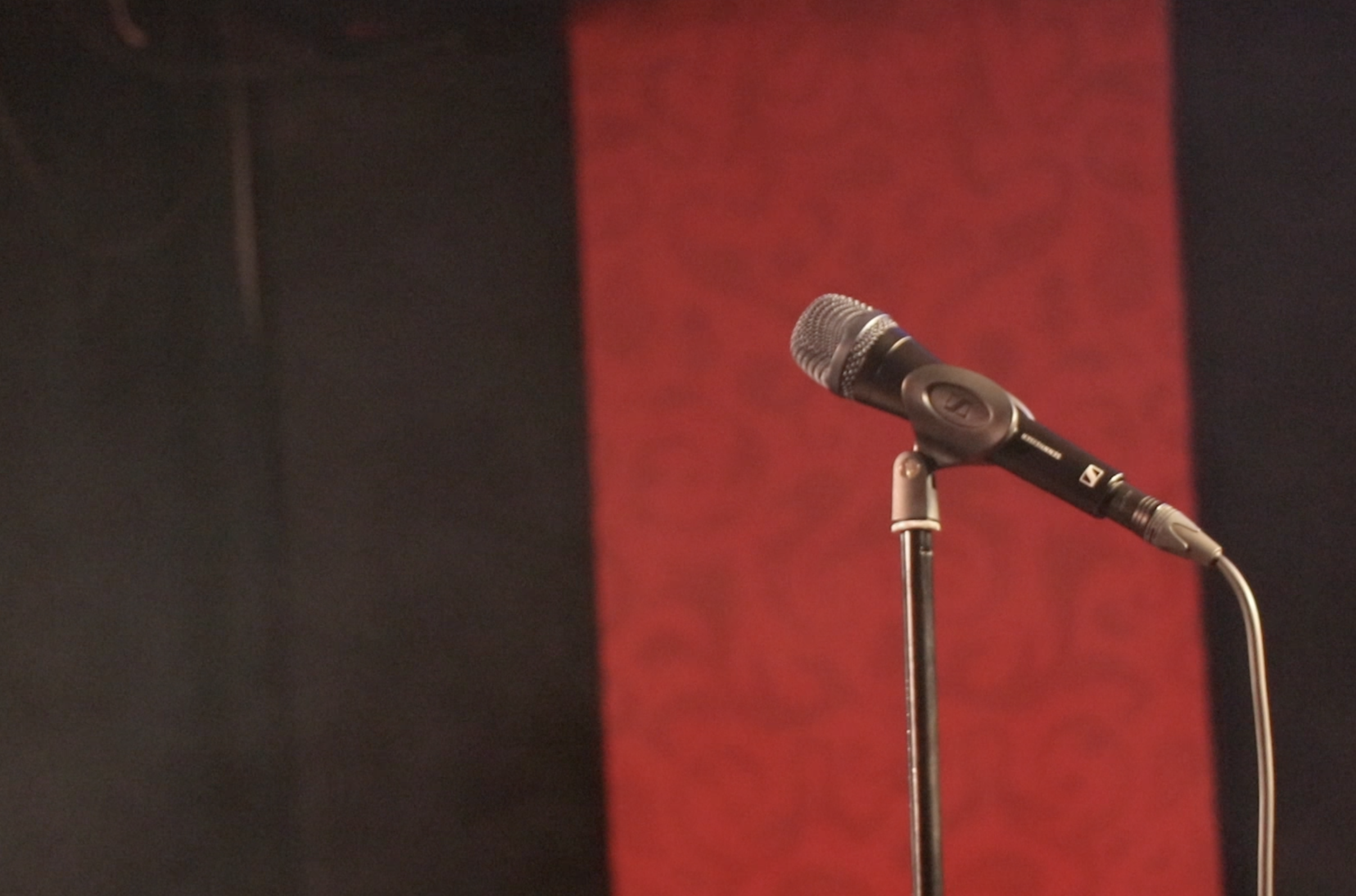Humor is a subjective thing. People have their own ways of telling jokes and some are deemed hilarious, while others are rewarded with cricket noises. This is simply because of the fact that every human being labels different things as ‘funny’. But does that work the same everywhere around the world?
When I saw that Elena Gabrielle, a comedian I’d seen perform in a Berlin comedy club on a queer women night, would do a performance on Cyprus, I was surprised. Cyprus is a country that is deemed as more traditional in its views and where religion plays a bigger role in its culture. I wondered how she’d go about it and how she would still get the ‘funny’ label in different countries.
Elena is an Australian born stand-up comedian who has been touring internationally and has done shows in about 70 countries. She tells me that she notices minor differences in every country or even city she’s performing in and that this is what she loves about the job. The day before I got a chance to speak with her she performed in Limassol, a city on Cyprus. She tells me: “When I’m performing on Cyprus I always make a joke about Paphos and it’s always a big laugh. You try and kind of have that at the start of a show, sort of showing bits and pieces of their culture.”
I ask her what is so much fun about touring internationally. “I’ve been doing this for 14 years and I fell in love with touring. I love hearing people’s stories, hearing different cultures and making people laugh of course. Every crowd is different. If I do shows in more conservative places for example, wether that be religion or politics, that can definitely impact the audience and how they react.”
How do international audience differ?
“Sometimes I don’t like making things too country specific, because you know” Elena says while laughing. “But I always thought that for example a place like New Zealand would be really open and a really easy place for me to do shows, but they’re actually one of the worst audiences. So that was kind of a surprise. On the flip-side i’ve done shows in the middle-east and in more religious countries and you think they’re not going to laugh but then it’s the complete opposite and they laugh at everything. And when you look at comedy styles; America and Europe, they’re two very different styles of comedy. Europeans are more self-deprecating but you can’t be like that in the US. You have to make it quick and snappy to keep their attention. They’re not as much into storytelling. I remember telling a joke about a german guy and they just really couldn’t relate to it and you could tell that they were switching off.”
Does humor vary in different countries?
Elena thinks so. “I do think humor is different in different countries, but there’s a part of me that thinks that’s probably changing because of the internet, traveling and globalisation as well. I think in Europe for example, English seems to be taking over and there’s more and more families growing up with American sitcoms and stuff like that. So especially in the new generation, although people do have their culture, I do think that humor is a bit more homogenised.”
When I ask Elena if she sometimes changes up her set for specific countries or places she tells me there are ways for her to go around things, but that she generally talks about the same stuff “I’m kind of known for talking a lot about sex. There’s a big stereotype that women aren’t funny and I see it while performing. Sometimes there’s men in the crowd kind of glazing over but for me I don’t really care about them. I don’t do it for them, I do it for the women. Because they end up laughing. At some locations I do take it a bit slower at the start of a show and start talking about relationships first instead of sex. I have a notebook with different countries and different quotes that I can use for shows.”
To find out more about humor and culture, I spoke to Dick Zijp, an external PhD candidate and lecturer at the Department of Media and Culture Studies at Utrecht University with a background in theatre studies, philosophy and cultural studies. Dick states there aren’t necessarily ‘rules’ for when something is seen as funny and that there’s no golden recipe, but that there are certain social rules to take into account. For example there’s often said punching down is less funny than making fun of someone who’s already higher up in the social hierarchy. People like it when humor crosses a border a little bit, but not too far. So one has to know when that border is crossed and when to stop.
Dick tells me: “There are ideas about certain humor being distinctive for certain cultures. You have to have a lot of cultural knowledge to understand certain jokes. There are cultural differences in humor shapes, but there are more differences in humor content. To understand humor you have to understand a culture. So the jokes that are being made, and the groups that are being joked about, are very culturally dependent. So while there are different shapes of humor being used in different cultures, these can be the same in these cultures. However, to understand the content of humor across different cultures one has to have a certain level of understanding of the culture and context. And so there’s various jokes in various cultures that will be seen as funny.”
So how can internationally traveling comedians be funny?
Dick tells me that one one hand they’ll have to adapt and accommodate to the audience their in front of. To break the ice for example, they’ll make a joke about the country or city they’re in, which is what Elena told me as well. Dick says: “What is mostly important for humor to succeed is you’ll need to talk about subjects that the audience understand, so they’ll understand what the jokes are about.”
Elena says: “I think comedy is always about relatability. A lot of my stuff is about dating and that’s such an international subject. Everyone in the world if they haven’t had sex, they want to have sex. Or they’re dating. That’s what I love about Europe, I mean it’s my biggest kind of market. There’s not a lot of English speaking comedians, especially female comedians talking about dating in Europe. You sort of relay their culture through your eyes. I’m telling my experiences but it’s obviously everyone’s experience as well.”
So for something to be given the ‘funny’ label it depends on the context and culture but also the comedy styles that are different around the world. If it’s understandable for the audience, it’s likely to be successful, no matter the location. And then there’s some things that are universally funny, like Elena dancing around the stage in a big vagina suit. It seems to do the trick every time.






